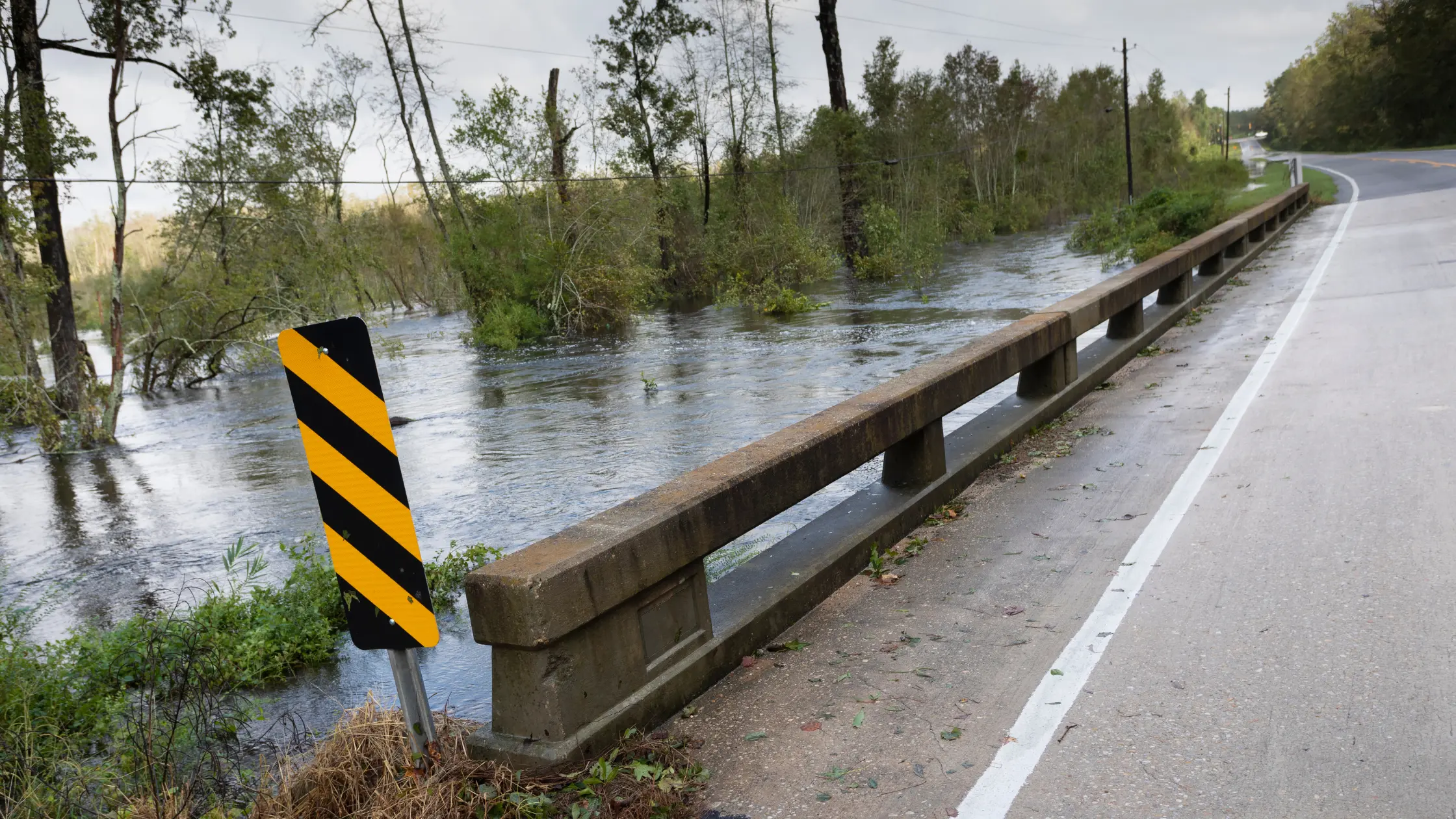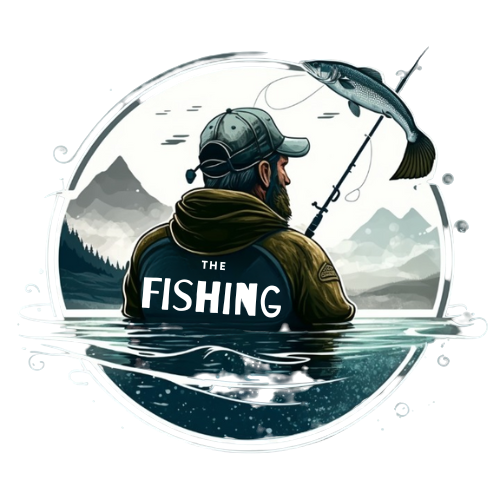
In the wake of a hurricane’s fury, communities are often left grappling with the devastation and starting the rebuilding process. Amidst the chaos, many anglers may wonder if the turbulent waters left behind present a unique opportunity for exceptional fishing.
But, is fishing good after a hurricane?
Yes, fishing after a hurricane can be great! This is because the storm brings lots of food for the fish in the ocean. Fish become very active after a storm and will be easier to catch. Also, fish know when a hurricane is coming because they can feel the pressure change in the water. This makes it harder for them to find food, so they eat a lot before the storm arrives. That’s why fishing can be really good after a hurricane.
Table of Contents
Setting the Scene: The Aftermath of a Hurricane
The aftermath of a hurricane can be devastating, leaving destruction and chaos in its wake. Homes were destroyed, streets flooded, and lives were lost. The impact on the environment can also be significant, with trees uprooted and landscapes changed forever.
Hurricanes are known to cause significant impacts on marine life as well. Strong winds and high waves disrupt the ocean’s natural ecosystem, changing water temperatures and salinity levels.
While the damage caused by hurricanes is often heartbreaking, there is one silver lining that fishermen have been taking advantage of for centuries – post-hurricane fishing!
That’s right; some fisherman believes that fishing after a hurricane is one of the best times to cast your line. And, yes, they are correct.
Is Fishing Really Good After a Hurricane?
Let’s dive into that.
Now you might be wondering why someone would want to fish after such catastrophic events. One word – opportunity!
In the days following a hurricane, fish populations tend to be more active than normal. Strong winds stir up the water column causing fish to migrate from their usual habitat in search of food. Many anglers have reported that species such as snook, tarpon, redfish, and seatrout are more prevalent during this time frame because it’s when they move closer to shore searching for food after being disrupted by strong currents.
However, not everyone agrees with this sentiment. Some argue that it’s not ethical or safe to fish after such destructive events when people are still recovering from loss and devastation. Others believe that it’s not possible for fish populations to recover quickly enough after major hurricanes before being fished again.
Now, you might be bit of confused, don’t worry. Let’s understand the science.
Science Behind Fishing After a Hurricane
Hurricanes can affect fish habitats in several ways. For example, hurricanes can cause changes in water temperature, salinity, and oxygen levels. They can also cause changes in the physical structure of the habitat, such as by moving sand and other sediments around. These changes can have both positive and negative effects on fish populations.
I found a study by researchers at the Beaufort Laboratory of the Southeast Fisheries Science Center and a colleague at the Naval Postgraduate School that shows that fish occupying habitats as deep as 120 feet can also be strongly affected by hurricanes.
Another study by Florida Fish and Wildlife found that two 2004 hurricanes resulted in a drop in salinity from 26% to 15% in the Indian River Lagoon. During those two hurricanes, the fish community changed immediately following the hurricane, but scientists found that it had returned to normal after several weeks.
Impact of Hurricanes on Fish Populations:
Hurricanes can have a significant impact on fish populations, both negative and positive. Some fish populations can experience a decline in numbers due to increased mortality rates, while others may benefit from the increased food availability brought about by the storm.
Additionally, hurricanes can change water structures that are essential for fish habitats and alter entire ecosystems. One way in which hurricanes impact fish populations is through their effects on marine habitats.
Strong winds and waves generated by these storms can cause severe damage to natural environments such as coral reefs, shorelines, and mangrove forests. In turn, this damage can lead to habitat destruction for various species of fish, including those that depend on these areas for breeding or foraging.
Another direct impact of hurricanes is mortality rates among fish populations. Heavy rainfall during a hurricane event can cause rivers and streams to overflow their banks, leading to rapid increases in water levels that often result in floods.
These floods can wash out entire populations of fish by carrying them away from their natural habitats or suffocating them with oxygen-depleted water.
How Hurricanes Can Change Water Temperatures and Salinity Levels:
Hurricanes also affect the physical properties of seawater, such as its temperature and salinity levels. Storm surges caused by hurricanes lead to an influx of cold water into usually warmer waters which lead to decreased temperatures near the shoreline.
On the other hand, when a hurricane passes over open waters, it increases sea surface temperatures which affect temperature stratification in coastal areas. The increase or decrease in water temperatures following a hurricane event significantly impacts marine organisms living within these waters.
Cold-blooded creatures such as fish are directly affected by changes in water temperature because their ability to function biologically depends upon it. In addition to temperature changes resulting from hurricanes, salinity levels may be altered as well.
Often, the surge of water from a hurricane carries sediment and debris into the ocean, causing changes in salinity levels. These changes in salinity can either be beneficial or detrimental to fish populations depending on the species involved.
How Fish Respond to These Changes:
Fish are highly adaptive creatures that can respond to environmental changes quite quickly. After a hurricane event, fish may experience various physiological and behavioral changes in order to survive within altered habitats.
Following a hurricane event, fish may shift their feeding habits and locations as they seek new sources of food or shelter. As mentioned earlier, hurricanes can cause significant damage to natural environments such as coral reefs which prompts fish populations to migrate elsewhere for feeding or shelter purposes.
Fish may even undergo physical changes in order to better adapt to new environments. For example, some species have been known to develop darker skin pigmentation after being exposed to different light conditions caused by hurricanes.
The Pros and Cons of Fishing After a Hurricane
Pros: Increased Fish Activity, Less Competition, and New Fishing Spots
After a hurricane hits, there are some prime spots just waiting to be discovered. With changes in water and structure come new opportunities to find those big catches that have been hiding in deeper waters. But it’s not just about finding new spots.
Hurricanes also cause changes in water temperature and salinity levels which can increase fish activity. Theories suggest that hurricanes stir up nutrients at the bottom of the ocean, creating a feeding frenzy for fish. This means that anglers can expect to catch more fish than usual during this time. And let’s not forget about less competition.
After a hurricane hits, many anglers stay away from the water due to safety concerns or fear of unpredictable conditions. This means that there are fewer people out on the water competing for those big catches.
Cons: Safety Concerns, Unpredictable Conditions, and Potential Environmental Damage
Despite the benefits of fishing after a hurricane, it is important to acknowledge the potential risks involved as well.
First and foremost are safety concerns. Hurricanes can cause significant damage to boats and infrastructure along coastal areas, which could make getting out on the water dangerous or even impossible. Strong winds and currents can also make it difficult for even experienced anglers to navigate safely.
We must consider the potential environmental damage caused by hurricanes themselves. Storm surge from hurricanes can cause significant damage to coastal areas, including erosion of fishing habitats and destruction of coral reefs.
While fishing after a hurricane may seem like a great opportunity for anglers to land big catches and explore new areas, it is important to consider both the benefits and potential risks involved.
Tips for Successful Post-Hurricane Fishing
Choosing the Right Equipment:
When it comes to post-hurricane fishing, choosing the right equipment can mean the difference between coming home empty-handed and catching the biggest fish of your life. Two critical factors to consider are selecting lures that mimic injured prey and using heavier gear.
Selecting lures that mimic injured prey:
After a hurricane, fish are more active as they search for food in disturbed waters. Using lures that mimic injured prey is a highly effective way to entice fish to bite. Try using soft plastic baits that resemble shrimp or small baitfish, as these are likely what the fish are feeding on in the aftermath of a storm.
Don’t be afraid to try different colors and sizes of lures until you find what works best for you. Brighter colors may be more visible in murky water, while smaller lures may be easier for fish to swallow whole, increasing your chances of hooking them.
Using heavier gear:
The strong currents and debris-filled waters after a hurricane can make it difficult to handle lighter fishing gear successfully. It’s essential to use more substantial gear when fishing post-hurricane, such as heavy-duty rods and reels with a high-pound test line.
You’ll also want to use heavier sinkers or weights than usual since stronger currents will require additional weight just to keep your bait near the bottom where most fish feed.
The Bottom Line: Is Fishing Good After a Hurricane?
Fishing after a hurricane can provide an excellent opportunity to catch some big fish in less crowded areas. However, proper preparation is key when it comes to selecting equipment that will help you catch more fish.
Be sure to choose lures that mimic injured prey that fish are feeding on after a storm, use heavier gear than usual due to stronger currents and debris-filled waters, prioritize safety by wearing appropriate gear at all times while fishing post-hurricane as well, and understand how unpredictable mother nature could get sometimes.
References:
